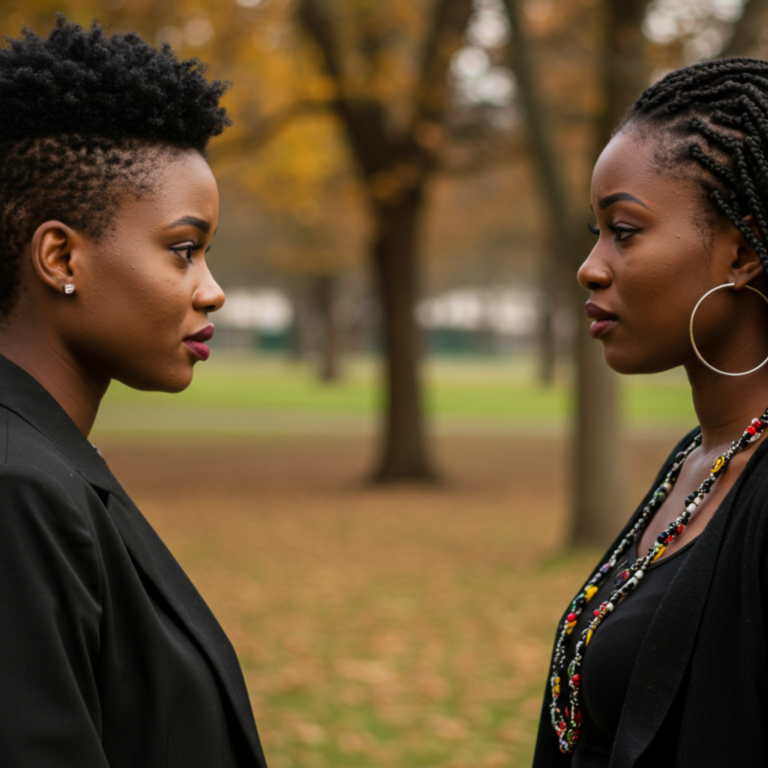Students in Nigerian universities have stories to tell, but hardly anyone to tell them to. For our weekly series, Aluta and Chill, we are putting the spotlight on these students and their various campus experiences.
The subject of this week’s Aluta and Chill is Joshua Chizoma, a 500 level student of Law at University of Nigeria, Enugu Campus. He talks about how his time in school has made him disillusioned with his faith, setting him on a quest for answers.

Tell me how you got into school.
I wrote my first UTME exam sometime in 2014. I applied to study Law at University of Ibadan, but I didn’t meet the cut-off by two marks. I was offered European Studies, which I took. However, there was an understanding between me and my parents that I would rewrite the exam the following year and go for Law again. I did that, but this time, I went for University of Nsukka, and I got it. I left Ibadan and came to Enugu, where the university’s faculty of law is.
How big was the change for you?
It wasn’t a big change. I’m from Imo state, and I was raised in Aba, Abia state, so Enugu wasn’t strange to me. Enugu is slower than Ibadan, but things are more expensive here — from tuition to food. One thing that irked me when I first got here was the almost non-existent water supply in the hostel. I had to buy the buckets of water I needed. This wasn’t a thing in UI. I think everyone knew I transferred from UI in my first month here because I was always complaining and comparing the two schools.
How quickly did you adapt to your new school?
Quite quickly. I’ve always been religious and I used to be in a church fellowship when I was in UI, so I found another one when I got to UNN. It gave me a community of people that always looked out for me. It was a great coping mechanism during my first months here. This could have been a happily ever after story, but I started to get disillusioned with the church after a while.

What do you mean?
I was pretty involved in the activities of the church. I even became a part of the church leadership in the second year — and that was when it started.
Where did that feeling come from?
It’s hard to say. It was a culmination of several factors that built up over time. It started when I began to question a lot of things I was taught and brought up to accept. I became critical of everything I was expected to believe in, and it sort of pointed out all the inconsistencies in the bible.
I found the system which the church operated on worrisome. I wasn’t comfortable with all the politics that had plagued its operations. I thought everyone was supposed to be treated equally, but there was a disparity in the ways people were treated — it appeared that some people were being given preference, especially if they put on an act and project that they were loyal to the pastor. Also, as much as we tried not to acknowledge it, a person’s wealth was of great importance. There was just a lot of sycophancy and sentimentalism going on that didn’t sit well with me.

In addition, people tend to think the church is everything you need to believe in and push everything else into the background. For example; the way the whole “grace” thing is blown out of proportion is interesting, you’d be tempted to think that hard work has no place in the conversation. I remember someone telling me that it wasn’t important to achieve academic excellence or aspire to reach the summit because it wasn’t within the “realm of spirituality.” That rubbed me off the wrong way, and I felt that there should be room in the church to talk about all these things, especially considering that the community is predominantly students.
I suppose I’d always known these even before I came to UNN, but they came into full glare when I got here.
Did you talk to anyone about this?
No, I didn’t. That’s not something you talk about. I mean, what would it yield? We cloak a lot of things with spirituality that sometimes, we fail to have and drive actual conversations. If it’s not about your “salvation”, no one cares about it. I guess I thought nobody would understand where I was coming from, and that would make me stand out. In retrospect, I should probably have – it could have gotten me some answers.
Did this realisation change anything for you?
It hampered my relationship with God. I would be in church and would focus instead on all the externalities, and not necessarily on worship. In my 4th year, I took a step back from the activities of the church, so I could get away from all the politics and inconsistencies. It was the best thing I could do for myself because I had started to nurse some resentment towards the church and the people in it.
Didn’t anybody ask you why you decided to withdraw from your role?
Oh, they did. I had a long conversation with my pastor. Of course, I told him my heart was not in the right place and I needed to work on myself. That did it.
What did you do after that?
At the height of my disillusionment, I started to write about my distance from everything connected to my faith, and how I hope to find a place where I would be at peace with myself. There was this one I wrote, and the reactions that trailed it were interesting because people seemed surprised by it. I get that; I was still going through the motions, so I was still going to church. Everyone was just like “I hope you find closure.” I hope so too.

Do you think the university had a role to play in all this?
It was the platform I needed to meet people with different thought processes, and the school also taught me how to open my mind to what I wouldn’t ordinarily pay attention to. But ultimately, the institution of the church itself was the catalyst. If it wasn’t for the particular circumstances in the church, I probably wouldn’t be on this path. This didn’t happen when I was in UI.
Also, I met a couple of atheists in school, some of whom I became friends with, and the conversations I had with them opened me up to the possibility of questioning the place where my beliefs came from – if they came out of a place of conviction, or if they were foisted upon me by my parents and societal expectations, considering that I was raised in the east where Christianity is mainstream.
This is interesting, but have you found the answers you’re looking for?
No, I honestly don’t know. I guess it’s a process. And the only thing I could do for myself is to trust it. I still go to the church, and I still believe that I need a relationship with God. I just need to find these answers so that I can start to enjoy everything related to the church again.
Do you think you’re ever going to find them?
There is no guarantee, but I really hope so. That’s the point of asking these questions; of taking a step back from everything to get some clarity. It would be extremely disappointing if I don’t find them. It would almost seem like my whole existence was built on a giant lie. I’m not sure I can live with that.

Are you currently studying in Nigeria or elsewhere and have a story to share about your life in school? Please take a minute to fill this form and we will reach out to you ASAP.
Can’t get enough Aluta and Chill? Check back every Thursday at noon for a new episode. Find other stories in the series here.




